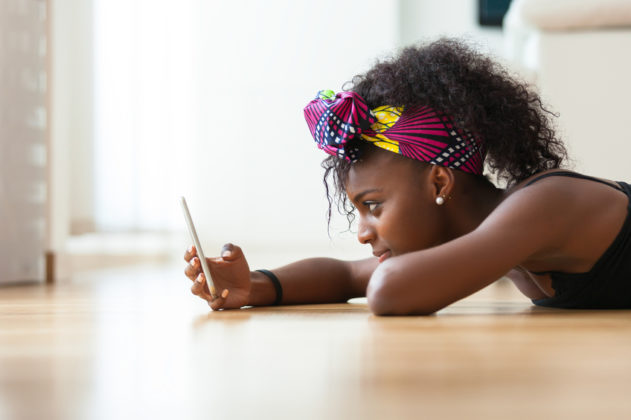A new study finds Tinder users experience an especially high level of self-scrutiny.
Blind dating has always been a risky proposition, in which things can go awry based on your face, your body, or a stray remark that is misinterpreted. And that rejection can be a rough punch to take.
Unlike in years past, where we may have relied on mutual friends or coworkers to set us up, we can arrange our own blind dates with a simple swipe, thanks to dating apps like Tinder. Instead of learning a bit about our date from people we trust, we make a call based on a few lines of text and some photos, which may or may not accurately depict the person we’re due to go on the date with.
That’s not an easy process for either party. Of course, sometimes everything goes perfectly and you wind up married. But when it doesn’t go well, it’s hard not to find fault somewhere with yourself. And that can leave you feeling bluer than before the online escapades ever began.
That’s at least what one new study suggests. The study, which examines the psychological effects Tinder has on its users, was recently presented at the annual convention of the American Psychological Association. In it, researchers asked a group of 1,300 mostly college kids to rate how they felt about themselves through questionnaires and self-reports.
Some of the (rather depressing) conclusions drawn by the authors include the fact that Tinder users tend to get really down about the way they look. They note, “Tinder users reported feeling poorly about themselves generally, making comparisons of their physical appearance to others, internalizing social appearance ideals, feeling ashamed of their bodies, and being focused on (and monitoring of) their bodies attractiveness.” The authors suspect the “host of body, appearance, and esteem related problems,” circle back to either a lack of positive feedback or the harsher reality that rejection is inevitable. “Being ‘swiped left’ means viewers did not find others attractive, and therefore rejected them primarily based on physical appearance without really knowing who they are,” they explain.
In a world where people are reduced to a few flattering thumbnails, that kind of rejection can hit especially hard.
Tinder has an estimated 50 million users. If we apply the study’s findings to the majority of them, we’re looking at a whole lot of negativity and pain floating around the Date-O-Sphere. According to the authors, a specific strand of that negativity lies within male users.
Male Tinder users reported significantly lower levels of self-esteem compared to female Tinder users and men and women who don’t user Tinder. Of course, that might have something to do with the fact that women appear to be a bit more discerning when it comes to who they “swipe right” for. The authors note men have been found to swipe right 46% of the time, as compared to women, who do so only 14% of the time. It’s unclear if that is connected to the claim that men outnumber women two to one on Tinder.
All those bad feelings might be having an effect on the company’s profitability. According to the New York Post, shares of Match Group, the company that owns Tinder, fell by nearly 6% last in July. That’s in part due to the fact that the number of paying subscribers hasn’t exactly ballooned, as previously expected. “The percentage of people using Tinder who will actually become paying subscribers is a lot lower than many people think,” Brandon Ross, an analyst at BTIG, explained in a note to clients earlier this week. According to Ross, there simply aren’t enough dating profiles on Tinder to swipe through, free of charge. Millions of singles have turned to rival apps like Bumble and Happn to meet their matches. But even with the “improved” options, venture capitalists remain wary of pouring more resources into new dating apps.
Of course, nothing is ever 100%. And there are a whole host of happy Tinder-ers to go around. But those who identify with the study’s findings might want to take a piece of advice that Trent Petrie, co-author of the paper and professor in the psychology department at the University of North Texas, gave to Time. He says, “These platforms may not be the best place to get validation that you’re an OK person or you’re attractive…Perhaps we want to look a little more inside ourselves, and to our close friends, for that validation.”
Carrie Weisman is an AlterNet staff writer who focuses on sex, relationships and culture. Got tips, ideas or a first-person story? Email her.
This originally appeared on Alternet. Republished here with permission.
Other Links:

